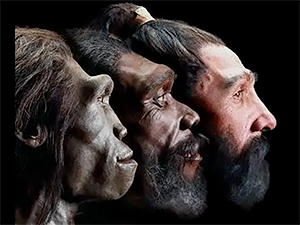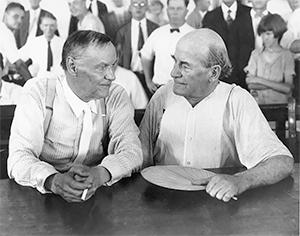
Biblical Creationism and the Judeo-Christian Tradition
The Judeo-Christian creation narrative, particularly as found in the Book of Genesis, is one of the most influential creation stories in Western history. According to Genesis, God created the world in six days and rested on the seventh. This account, with its defined chronology and divine causation, was widely accepted as literal truth throughout much of Western history, especially during the Middle Ages.
In medieval Europe, the Church played a central role in interpreting and enforcing the biblical worldview. Scholars like Saint Augustine attempted to reconcile biblical creation with philosophical reasoning, sometimes suggesting that the "days" of creation might not refer to literal 24-hour periods. Still, a literal reading remained dominant for centuries.
The Scientific Revolution and Challenges to Creationism
The rise of modern science in the 16th and 17th centuries began to challenge traditional creationist beliefs for some. Figures like Copernicus and Galileo overturned geocentric models of the universe, although they themselves did not abandon their belief on God's act of creation. Geologists such as James Hutton and Charles Lyell introduced the concept of an ancient Earth, based on observable geological processes.
The most significant blow to traditional creationism came with the publication of Charles Darwin's On the Origin of Species in 1859. Darwin’s theory of evolution by natural selection provided a tentative naturalistic explanation for the diversity of life, suggesting that species evolved over millions of years from common ancestors without the need for direct divine intervention.
This led to a profound conflict between science and religion, particularly in the United States and parts of Europe. While some religious thinkers sought to reconcile Darwin’s ideas with faith (leading to movements like theistic evolution), others rejected them outright, giving rise to modern creationism.
Modern Creationism and the Rise of Fundamentalism
In the early 20th century, particularly in the United States, a new wave of religious fundamentalism gave rise to a more rigid and literal interpretation of the Bible. This included a strong rejection of evolutionary theory and a reaffirmation of the Genesis creation account. The 1925 Scopes "Monkey" Trial in Tennessee famously put this conflict on national display when a high school teacher, John Scopes, was prosecuted for teaching evolution in violation of state law.
Following this period, creationist activism shifted strategies. The mid-20th century saw the emergence of "scientific creationism," which sought to frame creationist beliefs in scientific terms, promoting ideas like a young Earth, a global flood, and the separate creation of kinds. Organizations like the Institute for Creation Research (ICR) were founded to advance these views, often in opposition to mainstream science.
Intelligent Design and the 21st Century
In the late 20th and early 21st centuries, a new form of creationism emerged under the label "Intelligent Design" (ID). Proponents of ID argue that certain features of life and the universe are best explained by an intelligent cause, not by undirected processes like natural selection. While avoiding overt references to the Bible, ID has been criticized as a rebranding of creationism aimed at circumventing legal restrictions on teaching religion in public schools. Many think that such attacks are attempts by atheists to discedit a valid point of view against which they have unconvincing arguments.
The criticism of ID was used in the 2005 Kitzmiller v. Dover Area School District case, leading to a U.S. federal court ruling that Intelligent Design is not science and cannot be taught in public school science classes. Although the decision was a setback for the ID movement, it did not end the public debate.
Creationism Today: Global Perspectives and Educational Debates
Today, creationism persists in many forms and across diverse regions. In the United States, it remains a cultural and political issue, especially in debates over school curricula. Some religious groups advocate for teaching both creation and evolution as "competing theories," despite widespread scientific consensus supporting evolution. One is reminded, however, that science is not about "concensus," but rather, an advancing search for the truth. In fact, most of the great, past advancements in science were achieved when new ideas were used to challenge the existing concensus.
Outside the U.S., creationist beliefs vary. In some Islamic countries, for example, there are parallel debates about evolution and divine creation. Similarly, certain conservative Christian and Jewish communities around the world maintain literal interpretations of their sacred texts.
The history of creationism reflects a broader human quest to understand our origins and purpose. From ancient mythologies to modern courtrooms, creationist ideas have shaped cultures, influenced education, and sparked intense debates about the nature of truth, science, and faith. While the scientific community overwhelmingly supports evolutionary theory, the persistence of creationist beliefs underscores the enduring power of religious tradition and the increasing power of arguments made in support of intelligent design in the universe.



